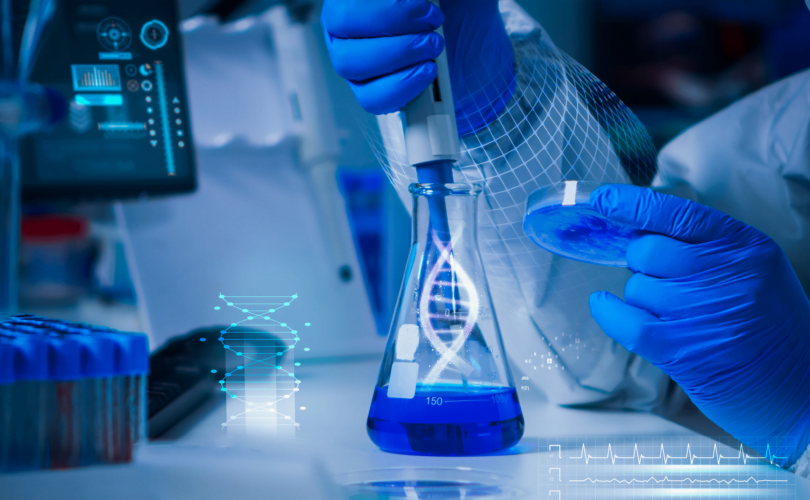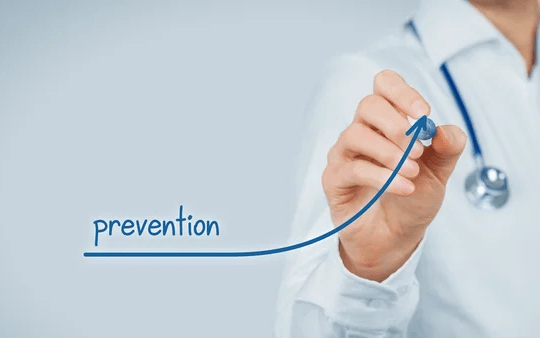In the ever evolving landscape of healthcare and wellness, exciting new healthcare discoveries are constantly reshaping the way we approach our physical and mental wellness. From cutting-edge treatments to unconventional breakthroughs, these innovations are paving the way for a healthier, happier future. Join us on this journey as we delve into some of the most recent discoveries that are transforming the world of healthcare and wellness.
The Gut-Brain Connection
Did you know that your gut might be influencing your mood and overall health more than you ever imagined? Recent research has unearthed the intricate link between our gut and our brain, highlighting the importance of maintaining a healthy gut microbiome.
The gut-brain connection is a two-way street: not only does the brain influence the gut, but the gut can also affect brain function. A thriving gut microbiome, composed of trillions of microorganisms, plays a pivotal role in regulating our immune system, producing neurotransmitters, and even influencing our mood. Conditions like irritable bowel syndrome (IBS) have been linked to an imbalance in the gut microbiome, further highlighting the significance of this discovery.
Incorporating probiotics, prebiotics, and a diet rich in fiber can help foster a balanced gut microbiome, potentially improving mood and overall wellness. This newfound understanding is transforming the way we approach mental health, emphasizing the importance of a holistic approach to wellness.
The Rise of Telehealth
The digital age has ushered in a healthcare revolution of its own, with telehealth emerging as a game-changer in the field. Recent advancements in telemedicine have made it easier than ever to access healthcare services from the comfort of your own home.
Telehealth allows patients to connect with healthcare professionals through video calls, phone consultations, and even text messaging. This innovation has been particularly valuable during the COVID-19 pandemic, ensuring that individuals can receive medical care without risking exposure to the virus.
Beyond its convenience, telehealth has also increased access to healthcare for individuals in remote or underserved areas. With the expansion of telemedicine, the future of healthcare is looking brighter, more accessible, and incredibly convenient.
The Mysteries of CRISPR Gene Editing
CRISPR-Cas9, often referred to as “genetic scissors,” is a groundbreaking technology that allows scientists to edit genes with precision. While CRISPR has been around for a few years, recent developments with healthcare discoveries have taken gene editing to new heights.
This revolutionary tool has the potential to cure genetic diseases, prevent hereditary conditions, and even enhance human traits. Researchers are working tirelessly to unlock the full potential of CRISPR, exploring its applications in treating conditions like sickle cell disease, cystic fibrosis, and muscular dystrophy.
However, with great power comes great responsibility, and ethical considerations loom large. The debate surrounding the ethical use of CRISPR technology, especially for human enhancement, raises complex questions about where the boundaries of science should lie.
The Age of Personalized Medicine
One-size-fits-all healthcare is becoming a thing of the past, thanks to the rise of personalized medicine. Recent advancements in genetics, genomics, and data analysis are allowing healthcare providers to tailor treatments to individual patients, maximizing their effectiveness and minimizing side effects.
Through genetic testing and analysis, doctors can identify a patient’s unique genetic makeup and use this information to choose the most suitable treatments. This approach is transforming the treatment of conditions like cancer, where precision medicine can target specific mutations driving the disease.
Personalized medicine isn’t limited to genetics; it also includes factors like a patient’s lifestyle, environment, and microbiome. By considering the complete picture of an individual’s health, healthcare providers can offer more effective and holistic treatment plans.
The Therapeutic Potential of CBD
CBD, short for cannabidiol, has been making waves in the world of wellness and healthcare. Derived from the cannabis plant, CBD is non-psychoactive and offers a range of potential health benefits. While research is still in its early stages, CBD has shown promise in relieving pain, reducing anxiety, and even treating epilepsy.
One of the most significant breakthroughs in CBD research is its potential to combat epilepsy, especially in children. The FDA approved Epidiolex, a CBD-based medication, for the treatment of two rare forms of epilepsy in 2018. This marked a pivotal moment in the acceptance of CBD as a legitimate therapeutic option.
As CBD gains popularity, it’s essential to ensure you’re using high-quality products from reputable sources. Regulations and standards are still evolving in the CBD industry, so it’s crucial to do your research and consult with a healthcare professional before starting any CBD regimen.
The Healing Power of Psychedelics
Imagine a world where your mind could be the key to healing. Well, it might not be as far-fetched as it sounds! Recent research into healthcare discoveries and the therapeutic benefits of psychedelics has been nothing short of revolutionary. Substances like psilocybin (found in magic mushrooms) and MDMA (commonly known as ecstasy) are showing immense promise in treating conditions like depression, post-traumatic stress disorder (PTSD), and addiction.
Studies have found that a single dose of psilocybin, administered under controlled conditions, can lead to profound and lasting improvements in mood and mental wellness. Meanwhile, MDMA-assisted therapy is helping individuals confront and process traumatic experiences in a supportive environment, leading to significant reductions in PTSD symptoms.
These groundbreaking discoveries are challenging the traditional boundaries of mental health treatment and offering new hope to those who have struggled for years. It’s a testament to the power of science and the potential for unconventional solutions in healthcare.
The Mindfulness Movement
Mindfulness, the practice of being present and fully engaged in the moment, has gained widespread attention in recent years. It’s not just a trendy buzzword; scientific research supports its numerous health benefits.
Studies have shown that mindfulness meditation can reduce stress, anxiety, and symptoms of depression. It can also improve sleep quality, enhance cognitive function, and boost overall wellness. The simple act of being mindful—whether through meditation, deep breathing exercises, or mindful eating—can have a profound impact on our mental and physical health.
The mindfulness movement is a testament to the idea that taking time to care for our mental wellness is just as important as our physical health. In a fast-paced world, these practices offer a much needed respite and a path to greater balance and harmony.
The Power of Sleep
We all know that getting enough sleep is essential for our health, but recent discoveries are shedding new light on the importance of quality rest. Sleep is not just a time for our bodies to rest; it’s a critical period for physical and mental restoration.
Research has revealed that during deep sleep, our brains engage in a process called “glymphatic clearance.” This process involves the flushing out of toxins and waste products that accumulate in the brain throughout the day. It’s like a nightly brain detox, and it plays a crucial role in cognitive function and overall health.
Chronic sleep deprivation has been linked to a range of health problems, including obesity, diabetes, heart disease, and even Alzheimer’s disease. Understanding the vital role sleep plays in our wellness underscores the importance of prioritizing a good night’s rest.
The Benefits of Intermittent Fasting
Intermittent fasting, or IF, has gained popularity as a dietary strategy that goes beyond weight loss. Recent research has shown that fasting periods can have a profound impact on our health, including reducing inflammation, improving insulin sensitivity, and promoting longevity.
There are various ways to practice intermittent fasting, such as the 16/8 method (fasting for 16 hours and eating during an 8-hour window) or the 5:2 approach (eating regularly for five days and restricting calorie intake on two non-consecutive days). IF doesn’t prescribe specific foods but focuses on when you eat.
Intermittent fasting encourages the body to tap into its fat stores for energy, which can lead to weight loss. But its benefits extend far beyond shedding pounds. Fasting periods also trigger cellular repair processes and enhance the body’s ability to fight off diseases.
Before embarking on an intermittent fasting journey, it’s crucial to consult with a healthcare professional or nutritionist to ensure it’s suitable for your individual needs.
Conclusion
The world of healthcare and wellness is a dynamic and ever-evolving landscape, filled with exciting discoveries that have the potential to transform our lives. From the therapeutic potential of psychedelics to the personalized medicine revolution, these breakthroughs offer hope, convenience, and a deeper understanding of the human body and mind.
As we navigate this journey toward better health and wellness, it’s essential to stay informed, consult with healthcare professionals, and approach these discoveries with an open mind. The future of healthcare is bright, and by embracing these innovations, we can look forward to a healthier, happier tomorrow. So, here’s to a world of wellness filled with endless possibilities and discoveries yet to come!







